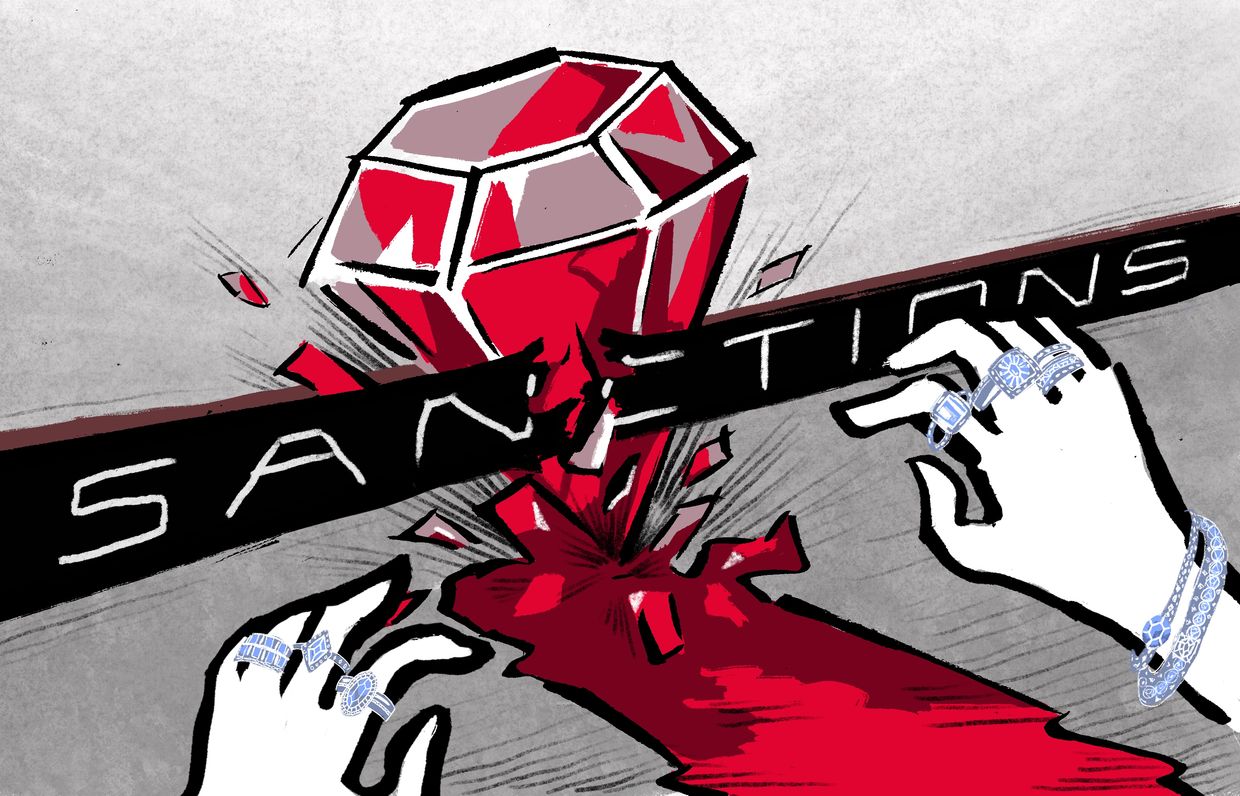Bloomberg: EU's new Russia sanctions package to target diamonds, oil cap, dual-use goods

The EU's upcoming 12th sanctions package may include export bans on machine parts and other dual-use goods Russia uses for producing arms against Ukraine, Bloomberg reported on Nov. 15, citing documents it obtained.
Other proposals reportedly include the much-awaited ban on Russian diamonds and measures to reinforce the $60-per-barrel price cap on Russian seaborne oil, which Moscow mostly managed to circumvent.
Despite the initial success of the price cap imposed by the EU, the U.S., and the Group of Seven (G7) last December, the vast majority of Russian crude is now being traded above the $60 threshold.
The product is being shipped by the so-called "ghost fleet" of vessels sailing without insurance and other services provided by Western companies or using falsified documentation.
Nonetheless, sanctions related to the price cap violations and other measures managed to thin Moscow's oil profits in October.
The new sanctions package may require companies to detail shipping and insurance costs for the Russian oil cargo to ensure greater transparency, EU diplomats told Reuters.
"The logic of imposing more transparency is to prevent shipping companies from hiding the real price of the oil carried by the tanker by merging it with shipping and insurance costs," one EU diplomat said
The EU also reportedly proposed to restrict exports of dual-use goods like chemicals, lithium batteries, thermostats, as well as motors and servomotors for drones that Russia uses for military production.
Bloomberg noted that the member states are expecting to discuss the proposals this week, and the content of the package may yet change.
The European Commission President Ursula von der Leyen said in late October that the work on the 12th package is underway, noting that the bloc members consider restrictions on Russian diamond sales.
The EU also seeks to strengthen the effectiveness of the sanctions already imposed against Russia over its invasion of Ukraine, von der Leyen noted. The bloc imposed its previous 11th sanctions package in June, aimed at countering sanctions circumvention, mainly in dual-use products and in Russian oil trade.











